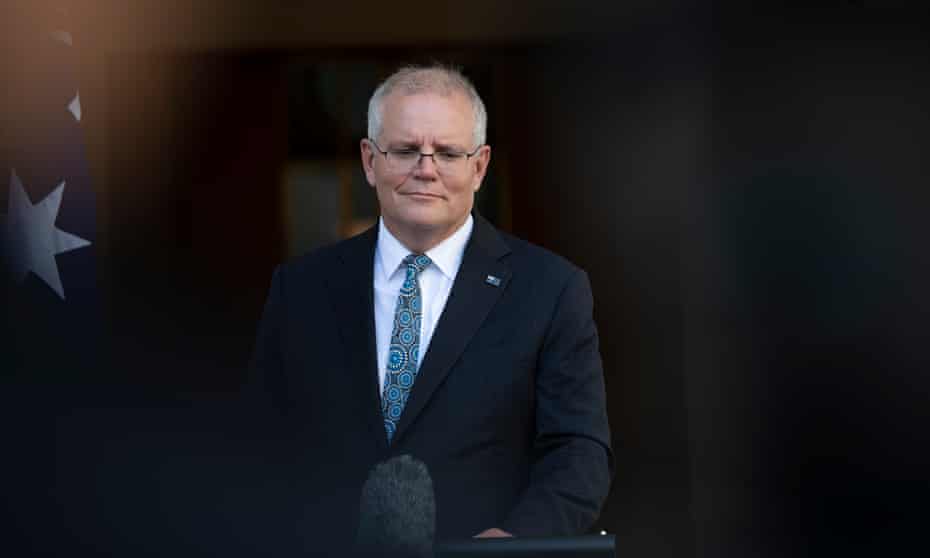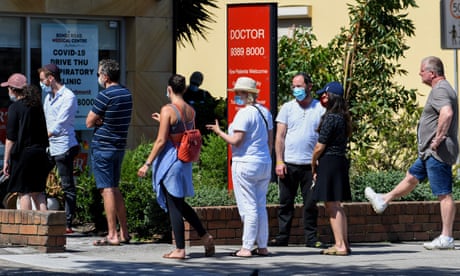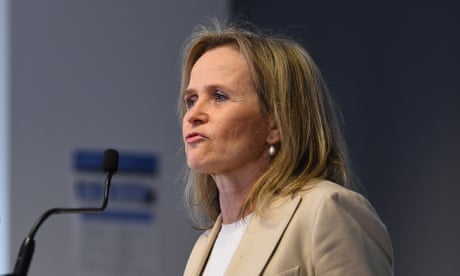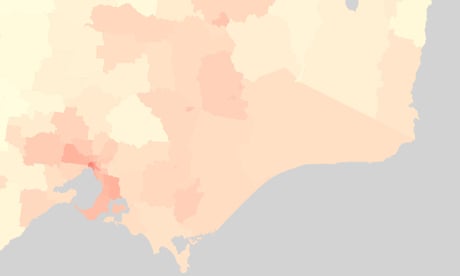Extract from The Guardian
The PM says he wants governments out of the lives of Australians, but in a raging pandemic that has left them feeling abandoned

Far from the hot vaxxed summer Australians were looking forward to, the Omicron wave has thrust the country into yet another season of uncertainty, panic and fear.
Confused and seeking assurance, the public has turned to the government for help – but lo and behold, the government was busy pursuing its strategy of getting out of everyone’s lives.
Driven by a laissez-faire zeal, Scott Morrison has stressed for months that governments of all persuasions needed to extricate themselves from the lives of Australians as we all learnt to live with Covid.

The idea was simple. Once most of the population was vaccinated, let the virus run freely in the community with limited restrictions on people’s movements. It was all of Craig Kelly’s Christmases come at once.
“Of course we take Omicron and Covid seriously, but we also value the lifestyle and the way of life we have in Australia, and I want Australians to be able to enjoy that as much as is safely possible,” Morrison said in December.
Switching the mantle of responsibility from government to individuals and the free market, Morrison stressed that Australians now needed to “make their own choices about their own health and their own lives”.
The economy was going to “power through” to next year, and individual responsibility and “commonsense” would become the new guiding principles for managing the pandemic.
The treasurer, Josh Frydenberg, said he did not believe the Omicron variant would dent Australia’s recovery, urging the population to “keep calm and carry on” (by which he meant “spend”).
At every turn of the Covid pandemic over the past two years, Australians have done the right thing.
Vaccination, lockdowns, mask wearing – you name it, Australians have got on and done what they have known to be necessary for their own health and for the health of the community.
The critical problem is there are no rapid antigen tests left to sell, let alone give away
As the Omicron wave hit at the same time as state borders opened, Australians again sought to do the right thing by getting tested.
But within days the system had collapsed.
People were waiting hours to get to the front of testing queues, test results were held up, and people understandably stayed away – no doubt contributing to the surge in infections that is now sweeping all states (except Western Australia, which is discovering what 2021 felt like for the rest of the country).
The key demand put to the government was this: let us take responsibility.
As far as I am aware, no one wants to stick a swab up their nose for selfish reasons – it’s not a beer run on a Dan Murphy’s special; they want tests to protect vulnerable relatives, to ensure their children are safe and to keep transmission as low as possible.
It’s precisely in line with what the community has been asked to do for the past two years: get tested, stop the spread, save lives.
It is galling to be told to step up and take responsibility, only to then discover that the government has let down its side of the bargain.
Health experts and economists say rapid antigen tests should be made free, and after several days of contortions, Labor leader Anthony Albanese also landed on this as a policy.
But the Coalition was unmoved, coming up with a bizarrely bureaucratic idea to give welfare recipients $100 through the payment system to allow them to buy their own. The idea was full of holes, and after a push by Queensland and Tasmania, the decision was made at national cabinet to instead give limited free tests to low-income earners through the pharmacy network.
Regardless of the cost debate, the critical problem Australia currently faces is that there are no rapid antigen tests left to sell, let alone give away.
At a key point in the pandemic, one of the critical tools for managing infection rates is missing in action.
Why?
The tests are cheap, and were widely available for sale on international markets last year. Various manufacturers in Australia were locking in contracts with overseas buyers because governments here were not interested, while other importers have been mired in the therapeutic goods approval processes.

Morrison and other state and territory leaders have been quick to point out that Omicron is a game changer. No one is denying that.
But even before Omicron, there were warnings about the need to secure rapid antigen tests. Health officials prepared advice in February last year that showed a transmission scenario where testing clinics would be overwhelmed. It suggested other testing methods could help sustain their capacity. The Australian Medical Association raised the issue in September, saying it was “bloody obvious” a RATs strategy was needed, and unions have likewise been calling for RATs to support workforce continuity.
But when the health minister, Greg Hunt, was asked about the government’s plans for rapid antigen test availability last October, his response was to “let that market develop”.
It is a staggeringly passive approach to take in the middle of a pandemic.
Liberal governments always look to the free market for solutions, and every public intervention so far required in this pandemic has occurred despite it going against every ideological fibre of the Coalition.
Government intervention remains counter-intuitive for Morrison, who sincerely believes that Australians naturally prefer a government-free life.
But throughout the pandemic, government intervention – not the market – has kept the public safe. This is why Australia secured a national stockpile of masks and protective personal equipment early on in the pandemic, and prioritised the vaccine that had the ability to be made in Australia. It was the reason for lockdowns and border closures and vaccine mandates, and the reason that freedom-loving Australians have mostly accepted the necessity of a larger role for the state.

Private retailers were never going to buy rapid antigen tests when there was no demand for them. Unlike governments, private companies have no obligation to prepare for public health emergencies.
Letting the market develop has ultimately led to rapid antigen tests being sold for $50 on UberEats. That’s can-do capitalism for you.
Letting the virus rip – which will now be unchecked by regular testing in several critical weeks of the Omicron wave – has resulted in unprecedented strain on the country’s health network as staff are furloughed. Nursing homes are closed. Elective surgeries are being cancelled.
The promised economic revival is a fizzer, with supply chains disrupted, businesses closing down and spending back to lockdown levels. Restrictions that were abandoned prematurely are now being brought back in.
With the peak of the Omicron wave still weeks away, Australia has lost count of case numbers, with no national system in place for reporting, and therefore no idea of what pressure will soon hit our health system.
Australians were promised freedom, and with it a return to something resembling normality as we started to live with Covid.
Instead, they have been left isolated and confused in a health crisis – and you can’t buy anything at the chemist for that.
No comments:
Post a Comment